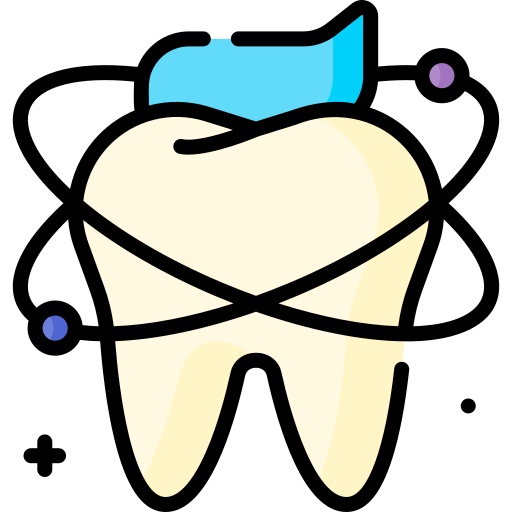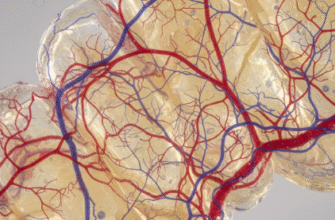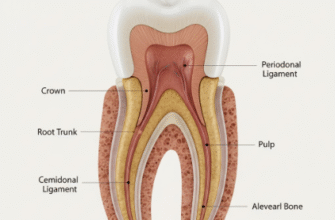For too long, many of us have treated our mouths like isolated islands, separate from the mainland of our overall health. A toothache? Annoying, yes, but surely just a local problem. Bleeding gums? Maybe we brushed too hard. This compartmentalized thinking, however, couldn’t be further from the truth. The notion that dental problems stay neatly contained within the confines of your jaw is a pervasive myth, one that it’s high time we debunked thoroughly.
The reality is, your mouth is a bustling gateway to the rest of your body, a complex ecosystem teeming with bacteria – some helpful, some not so much. When oral health falters, the consequences don’t just stop at bad breath or a cavity. They can ripple outwards, creating a cascade of effects that can influence your general well-being in ways you might never have suspected. Think of your oral health not as a standalone issue, but as a critical component of your body’s interconnected systems.
The Unseen Bridge: How Your Mouth Talks to Your Body
The Bacterial Highway
Let’s start with the basics. Your mouth is home to hundreds of species of bacteria. In a healthy mouth, these microorganisms are mostly in balance. But when oral hygiene slips – think infrequent brushing, skipping the floss, or missing dental check-ups – harmful bacteria can proliferate. This often leads to common dental issues like plaque buildup, gingivitis (early gum disease), and periodontitis (advanced gum disease).
Now, here’s where the connection to the rest of your body begins. With conditions like periodontitis, your gums become inflamed, swollen, and may bleed easily. This inflammation creates tiny openings, essentially breaches in your body’s defenses. Harmful oral bacteria can then seize this opportunity to enter your bloodstream. Once in circulation, these bacteria, and the inflammatory substances they produce, can travel to distant parts of the body, potentially triggering or exacerbating inflammation elsewhere.
The Inflammation Connection: A Body-Wide Alert
Inflammation is your body’s natural response to injury or infection. A little bit, in the right place and for a short time, is a good thing – it helps healing. However, chronic inflammation, the kind that can stem from persistent gum disease, is a different story. This low-grade, persistent inflammation has been implicated as a contributing factor in a host of broader health concerns. The inflammatory mediators released due to gum disease don’t just stay local; they can contribute to a systemic inflammatory state. This means that an unhealthy mouth can essentially keep your body in a constant state of low-level alert, diverting resources and potentially impacting other systems.
More Than Just a Pretty Smile: Digestion, Nutrition, and Confidence
Beyond the microscopic invaders, dental problems have very tangible impacts on your daily life that affect overall health. Consider the simple act of eating. Painful teeth, missing teeth, or poorly fitting dentures can make chewing difficult and uncomfortable. This can lead individuals to avoid certain foods, often those that are nutrient-dense but harder to chew, like fresh fruits, vegetables, and lean proteins. Over time, this can result in a less balanced diet, potentially leading to nutritional deficiencies that affect your energy levels, immune function, and overall vitality.
Moreover, the first stage of digestion actually begins in the mouth. Saliva contains enzymes that start breaking down food, and proper chewing increases the surface area of food particles, making them easier for your stomach and intestines to process. If oral problems compromise your ability to chew thoroughly, your digestive system has to work harder, which can sometimes lead to discomfort or less efficient nutrient absorption. And let’s not forget the psychological impact. Chronic dental pain or embarrassment about one’s smile can lead to social withdrawal, anxiety, and a reduced quality of life, all of which have knock-on effects on mental and, consequently, physical well-being.
Ripple Effects: When Oral Neglect Spreads Wider
The evidence linking oral health to systemic conditions has been growing steadily, painting a clearer picture of how an unhealthy mouth can cast a long shadow. While it’s crucial to understand these are often associations and complex interactions rather than simple cause-and-effect, the connections are too significant to ignore.
A Whispered Link to Heart Well-being
One of the most researched areas is the association between periodontal disease and cardiovascular health. Several studies have observed that individuals with significant gum disease may have a higher likelihood of experiencing certain heart conditions. The prevailing theory points back to inflammation and bacteria. Bacteria from infected gums entering the bloodstream can potentially contribute to inflammation in the blood vessels or even attach to fatty plaques in arteries, possibly playing a role in the processes that can lead to blockages. While gum disease isn’t considered a direct cause of heart disease in the same way as high cholesterol or smoking, managing oral inflammation is increasingly seen as a sensible part of a heart-healthy lifestyle.
The Diabetes Dynamic: A Two-Way Street
The relationship between diabetes and periodontal disease is particularly strong and notably bidirectional. People with diabetes are generally more susceptible to infections, including gum disease, because diabetes can impair the body’s ability to fight off bacteria. High blood sugar levels can create an environment where harmful oral bacteria thrive, and impaired circulation can reduce the delivery of nutrients and oxygen to gum tissues, hindering healing.
Conversely, severe gum disease can make it more challenging for individuals with diabetes to control their blood sugar. Active infections, like periodontitis, can cause a rise in blood sugar levels and increase insulin resistance. This creates a vicious cycle: uncontrolled diabetes makes gum disease worse, and worsening gum disease can make diabetes harder to manage. Therefore, good oral care is an essential component of diabetes management, and good diabetes management is crucial for oral health.
Breathing Easier: Oral Health and Respiratory Comfort
Your mouth and your respiratory system are close neighbors, and what happens in one can affect the other. Bacteria thriving in an unhealthy mouth, particularly in plaque around the teeth and in periodontal pockets, can be aspirated (inhaled) into the lungs. For individuals who are generally healthy, this might not pose a significant problem as their immune systems can usually handle it. However, for older adults, those with compromised immune systems, or individuals with pre-existing respiratory conditions like chronic obstructive pulmonary disease (COPD), these aspirated oral bacteria can potentially contribute to lung infections, such as pneumonia, or exacerbate existing respiratory problems. Maintaining a cleaner mouth reduces the bacterial load that could potentially be inhaled.
Pregnancy and Beyond: Wider Implications
Research has also explored links between maternal gum disease and certain pregnancy outcomes, such as premature birth or low birth weight babies. The exact mechanisms are still being studied, but theories involve the inflammatory response and bacteria from gum infections potentially affecting the uterine environment. While more research is needed to fully understand these connections, it underscores the importance of good oral health for expectant mothers as part of overall prenatal care. The message is clear: the health of your mouth has far-reaching implications, touching upon many facets of your physical well-being.
Verified Insights: Scientific studies consistently highlight the mouth as a mirror to overall health, with oral tissues often showing the first signs of systemic diseases. Leading health organizations worldwide advocate for integrating oral health into general health strategies. They emphasize that chronic inflammation from gum disease can contribute to inflammatory processes elsewhere in the body, underscoring the importance of proactive dental care for holistic well-being.
Prevention: Your First Line of Defense Against a Domino Effect
Understanding the profound connections between your mouth and your body naturally leads to one crucial takeaway: prevention is paramount. Taking proactive steps to maintain good oral health isn’t just about avoiding cavities or gum soreness; it’s about safeguarding your overall wellness and preventing a potential domino effect of health issues.
The cornerstones of good oral hygiene are simple, yet incredibly effective. Brushing your teeth at least twice a day with fluoride toothpaste is fundamental. This helps remove food particles and plaque, the sticky film of bacteria that constantly forms on your teeth. Don’t forget to brush your tongue, as it can also harbor bacteria that contribute to bad breath and other issues. Flossing daily, or using interdental cleaners, is equally vital. Brushing alone can’t reach effectively between teeth or under the gumline, areas where plaque loves to accumulate and where gum disease often starts. Making these habits a non-negotiable part of your daily routine is a powerful investment in your health.
The Power of Professional Care: Your Dentist as a Health Partner
While your daily efforts are key, they are best complemented by regular professional dental care. Visiting your dentist and dental hygienist for routine check-ups and cleanings – typically recommended every six months, though your dentist will advise what’s best for you – offers several benefits. Professional cleanings remove hardened plaque (tartar) that you can’t get rid of with brushing and flossing alone. These visits are also crucial for early detection. Your dental team can spot the early signs of gum disease, cavities, oral cancer, and even clues to other systemic conditions, often before you notice any symptoms yourself. Early detection almost invariably means simpler, less invasive, and more successful treatment. Think of your dentist not just as someone who fixes teeth, but as a partner in your overall health journey, helping you maintain that vital oral gateway in optimal condition.
A Holistic View: Embracing Total Body Wellness Starts with a Smile
The days of viewing dental health in isolation are, or at least should be, long gone. The evidence is compelling: your mouth is intrinsically linked to the rest of your body. Problems that start in your oral cavity don’t necessarily stay there; they can contribute to, or complicate, a wide array of general health concerns, primarily through the mechanisms of bacterial spread and chronic inflammation.
By debunking the myth that dental problems don’t affect overall health, we open the door to a more holistic approach to our well-being. Caring for your teeth and gums is not a superficial endeavor; it’s a fundamental aspect of self-care that supports your entire system. So, the next time you brush and floss, remember you’re doing far more than just polishing your pearly whites or freshening your breath. You’re actively participating in the maintenance of your overall health, strengthening one of the most important gateways to your body. Prioritize your oral health – your whole body will thank you for it.








